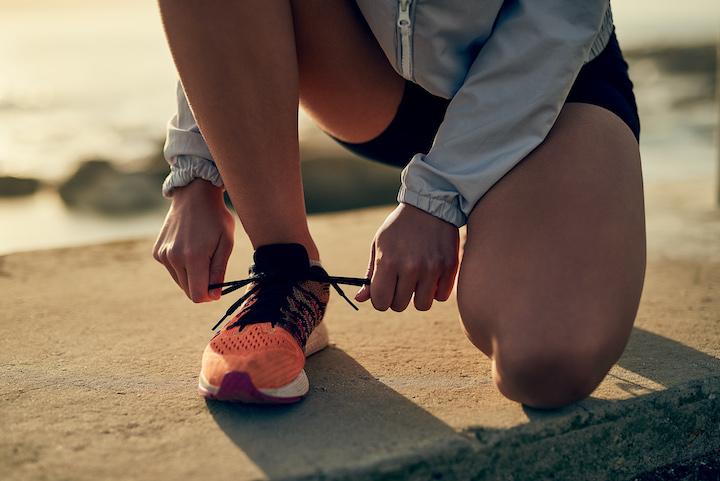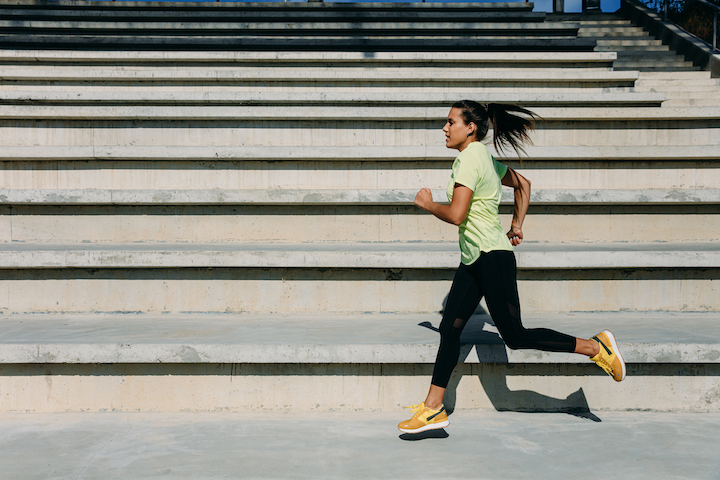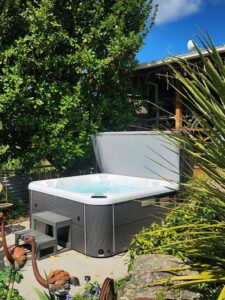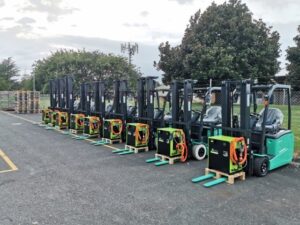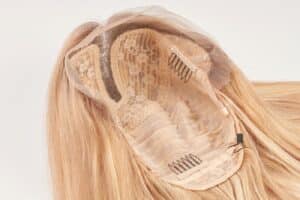When it comes to running shoes, there is no one-size-fits-all solution. The type of shoe you need depends on your foot type, running style, and even the surface you’ll be running on. With so many options on the market, it can be overwhelming to try and find the right pair of running shoes. But don’t worry, we’re here to help.
Here are our top tips on how to choose a pair of running shoes:
Know your Foot Type
There are three main types of feet: high arches, flat feet, and neutral. Knowing your foot type is important because it will help you choose a shoe that provides the right amount of support. If you have high arches, you’ll need a shoe that provides more cushioning to absorb the impact of your feet hitting the ground.
If you have flat feet, you’ll need a shoe with more stability to help prevent your feet from rolling inward when you run. If you have a neutral foot type, you’ll need a shoe that strikes a balance between cushioning and stability.
Consider your Running Style
Your running style can also impact the type of shoe you need. If you’re a heel striker, you’ll need a shoe with more cushioning in the heel to absorb the impact of your feet hitting the ground. If you’re a midfoot striker, you’ll need a shoe with more cushioning in the forefoot to absorb the impact of your feet hitting the ground.
If you’re a forefoot striker, you’ll need a shoe with more cushioning in the heel and forefoot to absorb the impact of your feet hitting the ground.
Choose the Right Shoe for the Surface you’ll be Running on
The surface you’ll be running on can also impact the type of shoe you need. If you are running on pavement, you’ll need a shoe with more cushioning to absorb the impact of your feet hitting the ground. If you’ll be running on trails, you’ll need a shoe with more traction to help prevent you from slipping.
Consider your Goals
Before you buy a pair of running shoes, it’s important to consider your goals. Are you training for a marathon? Are you trying to improve your 5K time? Knowing your goals will help you choose a shoe that is designed for the type of running you’ll be doing.
Go to a Specialty Running Store
If you’re serious about running, we recommend going to a specialty running store to get fitted for a pair of running shoes. The staff at a specialty running store are typically more knowledgeable about running shoes and can help you find a pair that is a good fit for your foot type, running style, and goals.
Don’t be afraid to ask for help If you’re having trouble finding a pair of running shoes that fit well.
Get your Feet Measured
Before you start trying on running shoes, it’s important to get your feet measured. Your feet can change over time, so it’s important to make sure you’re getting a pair of shoes that is the right size.
Try on Several Pairs of Shoes
Once you’ve been measured, it’s time to start trying on shoes. We recommend trying on several pairs of shoes to find the one that is the most comfortable.
Walk Around in the Shoes
Once you’ve found a pair of shoes that you think might be a good fit, walk around in them for a few minutes. This will help you get a feel for the shoes and see how they feel on your feet.
Run in the shoes
If possible, we recommend running in the shoes before you buy them. This will help you see how they feel when you’re actually running. if they don’t feel right you will also have a better idea of the things you need in a running shoe.
Follow Running Forums and Blogs
Join a running forum If you’re having trouble finding a pair of running shoes, try joining a running forum. These forums are a great place to ask questions and get advice from other runners. There are also many running blogs that review running shoes. These blogs can help you learn about the latest shoes on the market and find a pair that is a good fit for your feet.
Read Online Reviews
When shopping online, be sure to read online reviews of the shoes you’re interested in. These reviews can help you learn about the fit, comfort, and quality of the shoes.
Ask your Friends
If you have friends who are runners, ask them what type of shoes they prefer. They may have some good recommendations. And will have prior experience on what are key things to look out for and what you should avoid.
Conclusion
In the end, it’s important to trust your gut. If a pair of shoes doesn’t feel right, don’t buy them. We hope these tips have helped you learn more about how to choose a pair of running shoes. Remember, there is no one-size-fits-all solution.
Once you have found your perfect running shoes, you can also start looking at other running accessories you may need, like the best water bottle for exercising.

